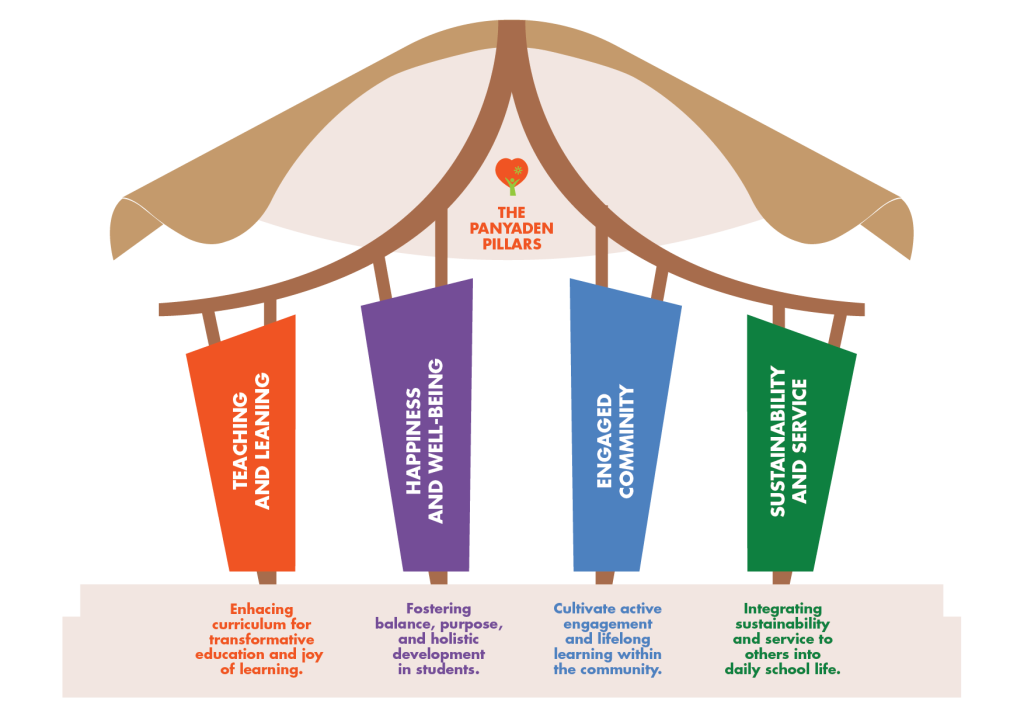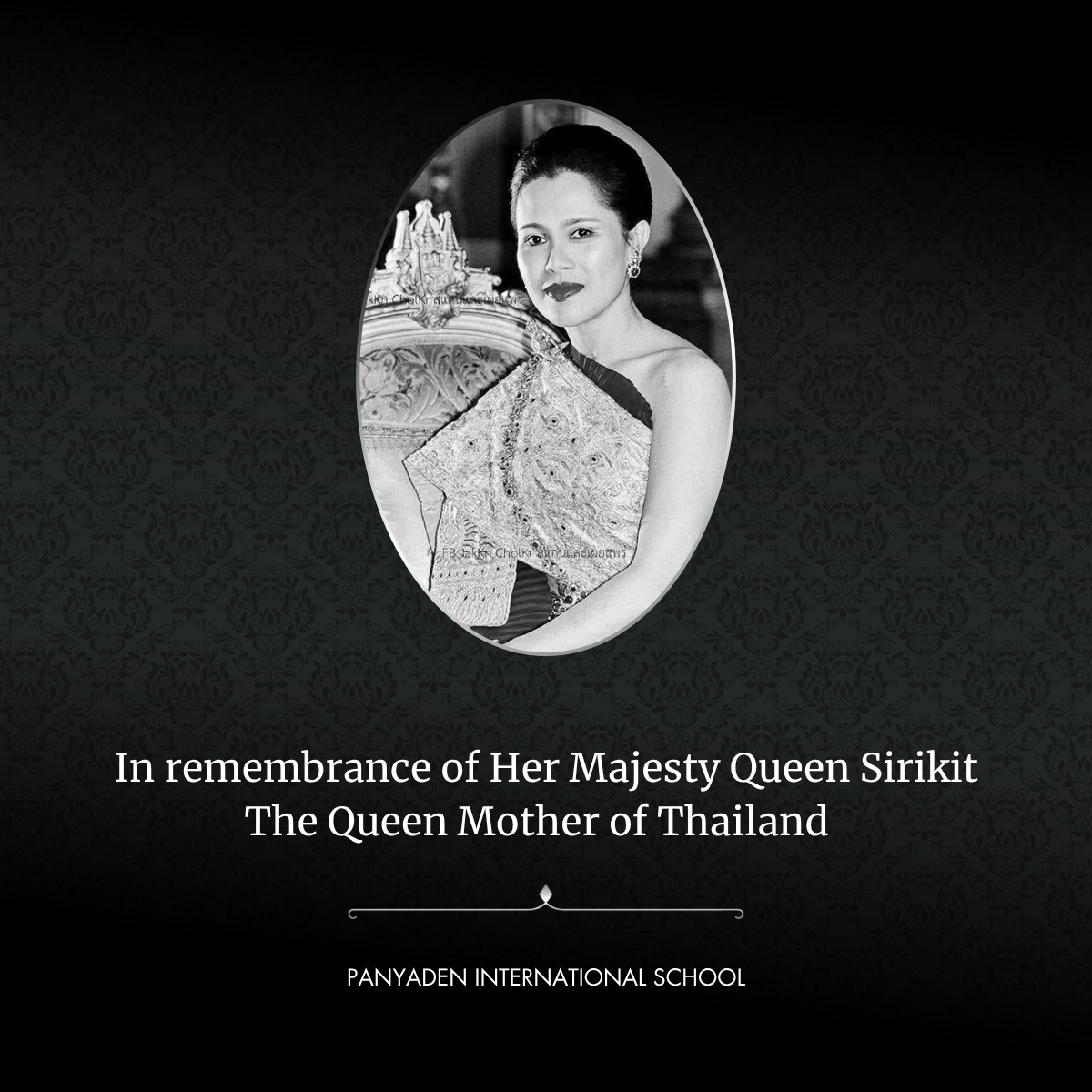Our guiding principles
We believe true success goes far beyond academic achievement. While intellectual growth is essential, lasting fulfilment comes from developing the whole person—nurturing sharp minds, compassionate hearts, and wise spirits.
Our distinctive approach harmonises atmosphere, environment, and curriculum with the Buddhist path to wisdom and happiness, fostering a learning community where students cultivate cognitive skills, emotional intelligence, ethical values, and mindful awareness.
We prepare students not just for tests and careers, but for lives of meaning, contribution, and genuine happiness. Panyaden graduates are equipped with the knowledge and wisdom to make a positive difference in our interconnected world.
OUR VISION
OUR MISSION
We empower students to think critically, live ethically, and contribute positively to the world around them. Guided by our 12 Wise Habits, we promote academic excellence, social-emotional growth, and spiritual development to nurture wise, connected, and compassionate learners.
The Panyaden Profile
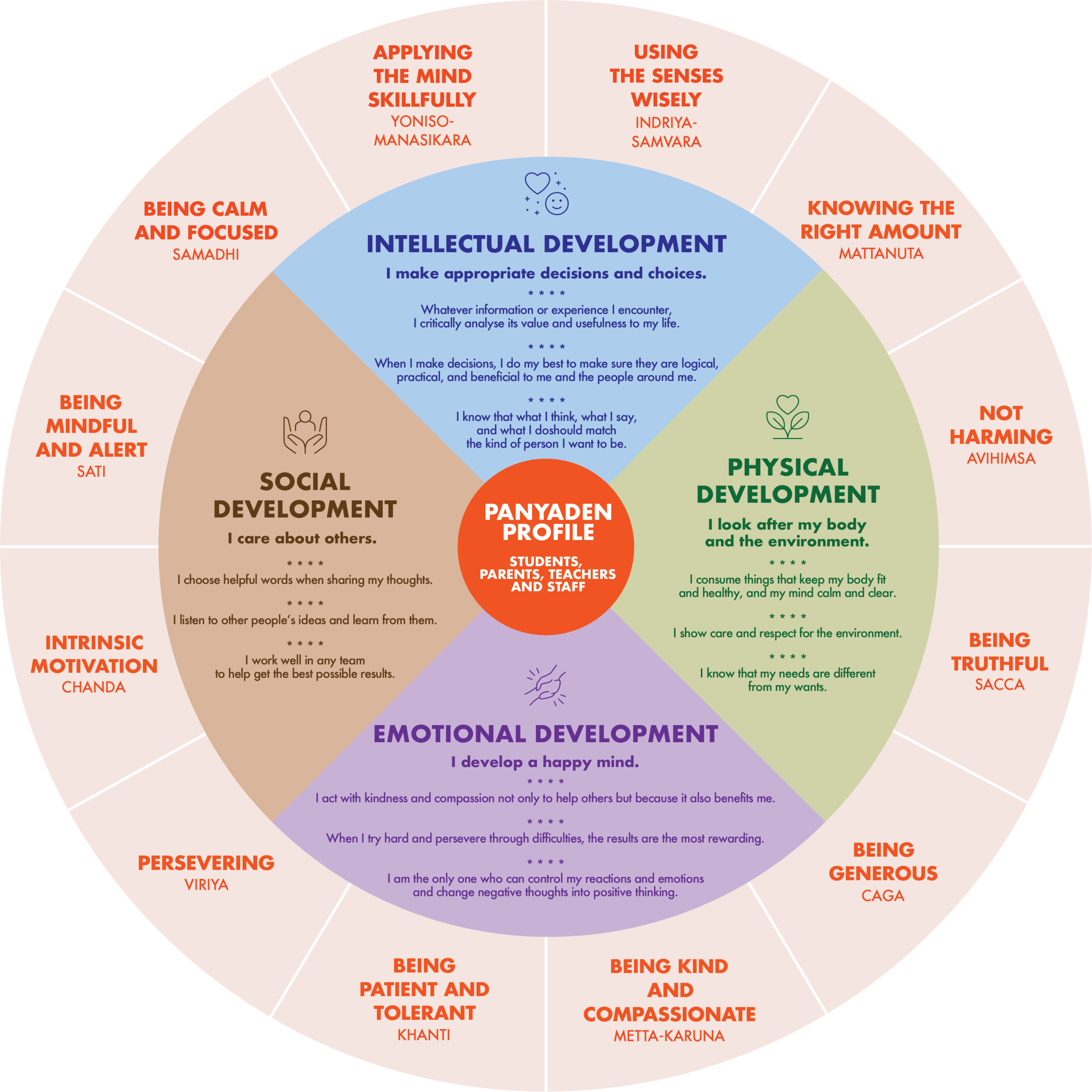
The Panyaden Profile maps student growth across four areas of development—physical, social, intellectual, and emotional—that we refer to as the Four Bhavana. It provides a comprehensive framework that guides our students' journey toward their highest potential. This holistic vision extends beyond our students to embrace our entire community, recognising that when we all grow together, we create an environment where exceptional education naturally flourishes.
By nurturing balanced development across all four dimensions, we provide an education that prepares students not just for academic success, but for lives of purpose, wisdom, and genuine fulfilment.
our values
The 12 Wise Habits
The 12 Wise Habits serve as essential building blocks for developing the whole child across four areas of growth—physical, social, intellectual, and emotional development. These carefully crafted habits, developed by the renowned Buddhist teacher Phra Ajahn Jayasaro, provide practical guidance for students and our entire community as we work toward fulfilling the Panyaden Profile.
The 12 Wise Habits are not abstract concepts confined to classroom discussions. They are woven into the fabric of everyday school life. Students and staff actively practice these habits throughout their daily interactions, learning experiences, and personal reflections. Whether in academic work, playground fun, or quiet moments of contemplation, these habits provide a consistent framework for making thoughtful choices and growing as individuals.
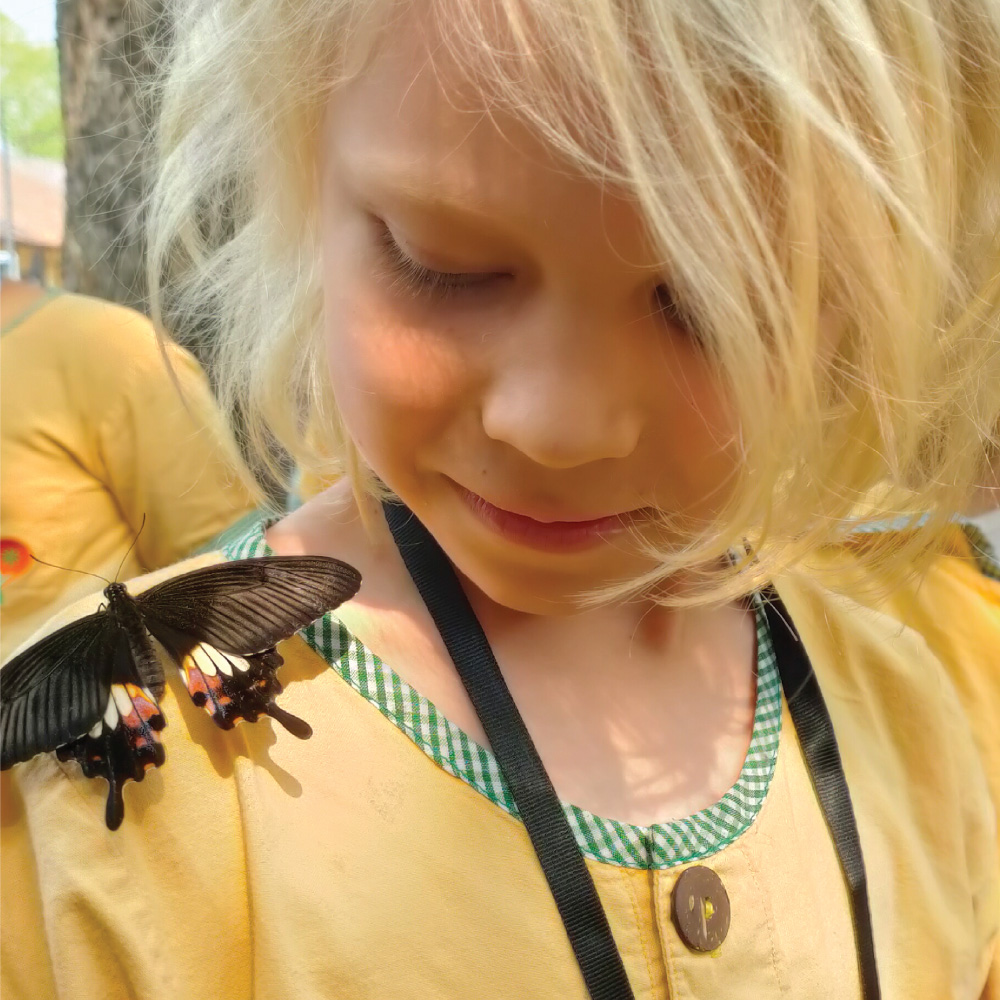
Avihimsa
Not harming
Not harming any form of life, from ourselves to other human beings, to animals and plants. Avihimsa helps us see the distinction between pain, created objectively, and suffering.
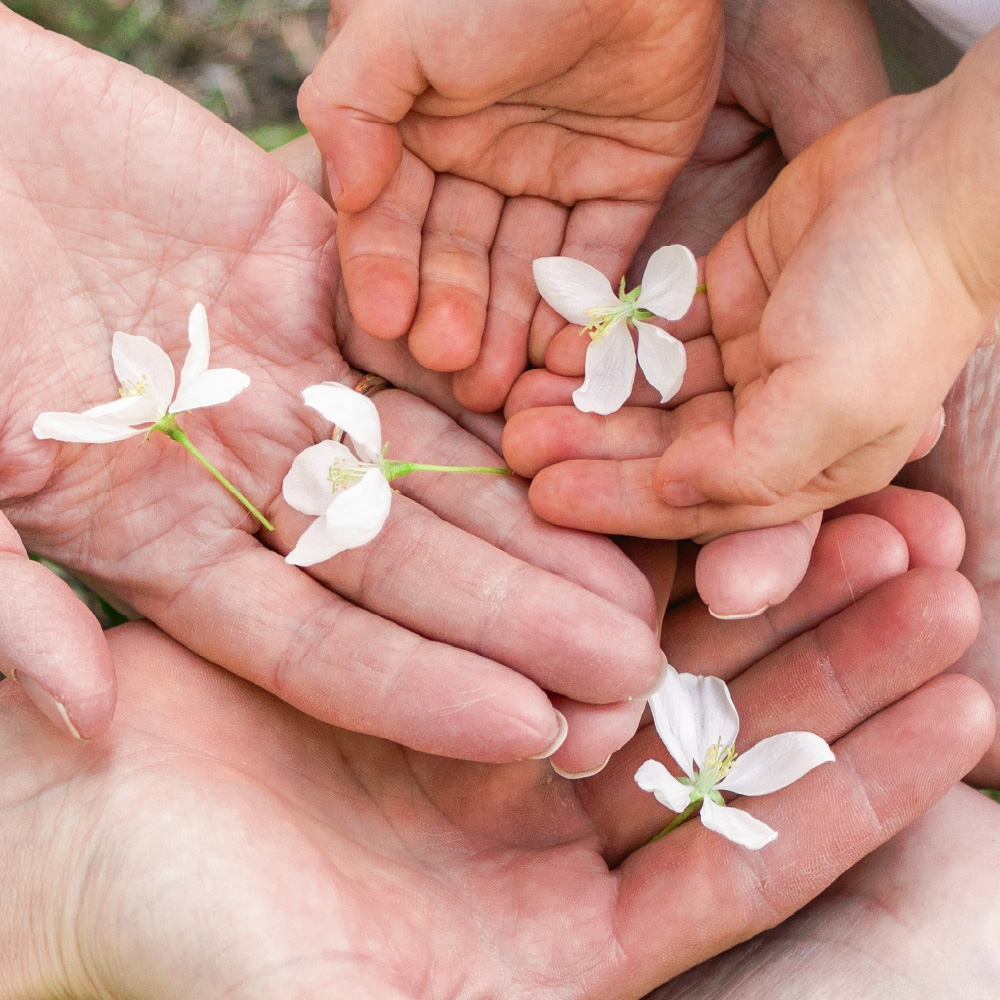
Mattanuta
Knowing the right amount
Knowing the right amount leads to a healthy balance in life. It is the quality of understanding that, whatever goals we set ourselves, we need an optimum amount of material and non material things. It is the ability to assess what is enough.
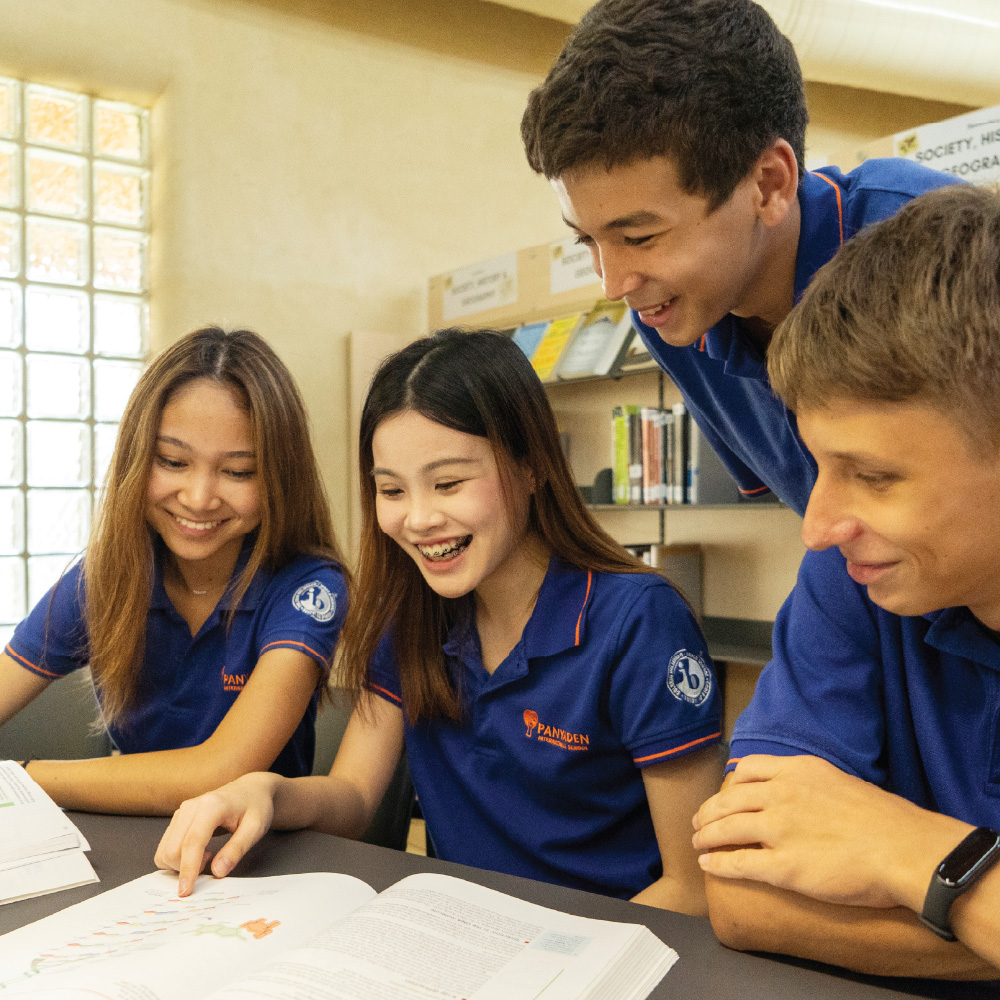
Chanda
Intrinsic Motivation
Having an intrinsic motivation or being enthusiastic without concern for the result, and instead focusing on the quality of the action in the moment.
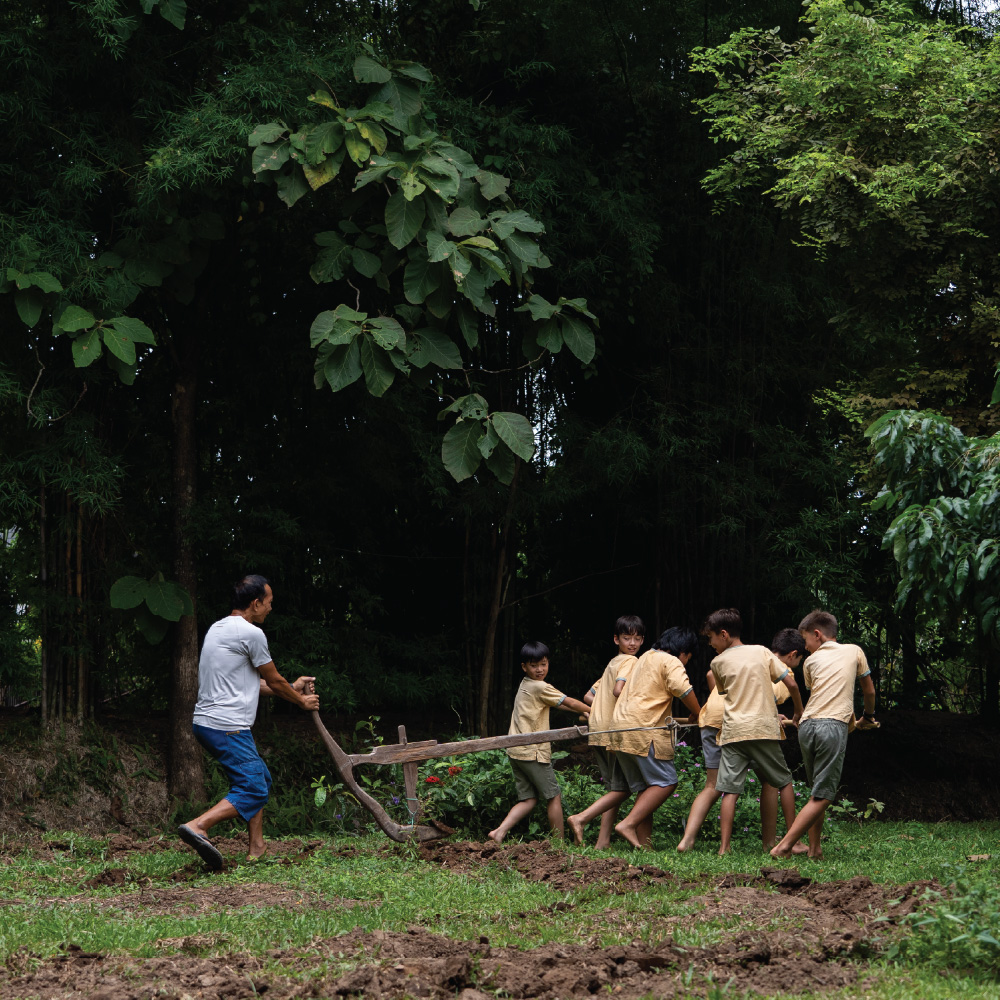
Viriya
Perservering
An attitude of gladly engaging in wholesome activities and staying with them to accomplish the desired results. It is the mind intent on being unshaken and not giving up.
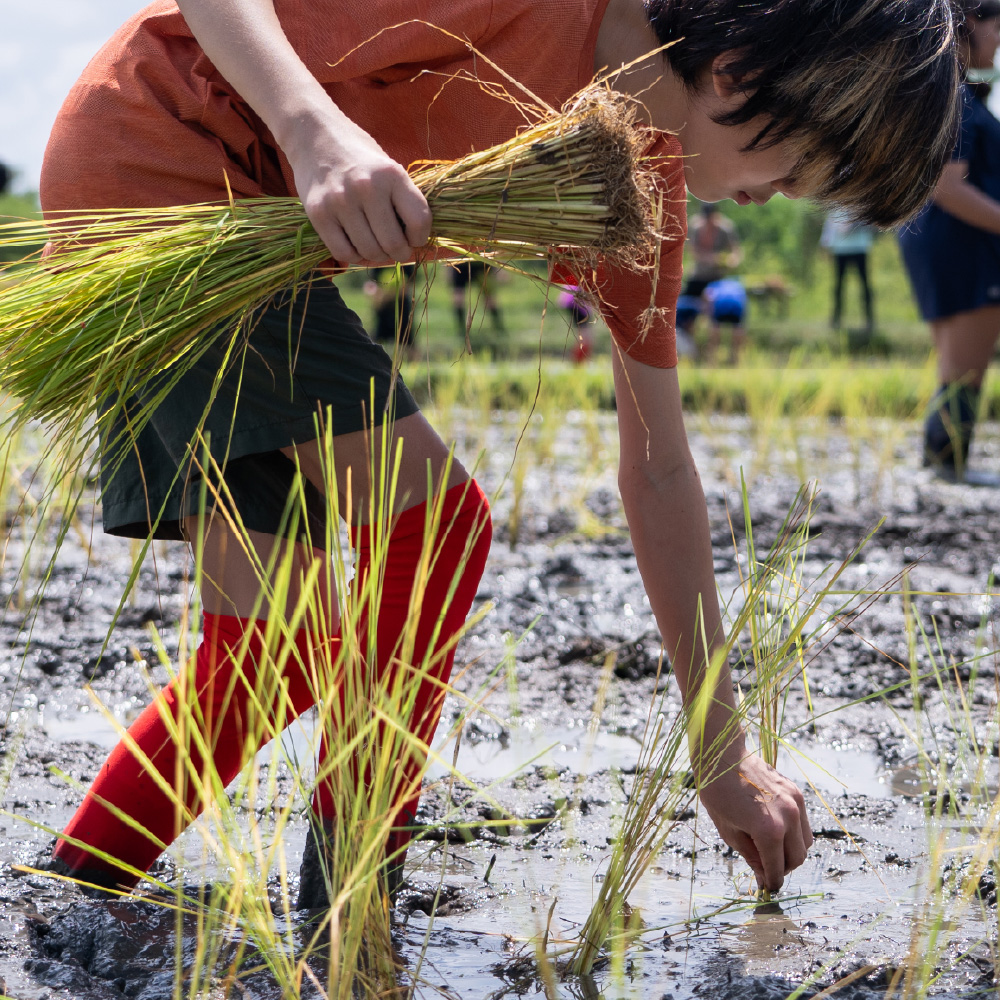
Khanti
Being patient and tolerant
Patient endurance of forbearance. As with other wise habits, it starts with patience with ourselves and extends to everything around us. It is the ability to tolerate provocation, hardship, pain, and all obstacles in your life, and the voluntary control of mood and temper.
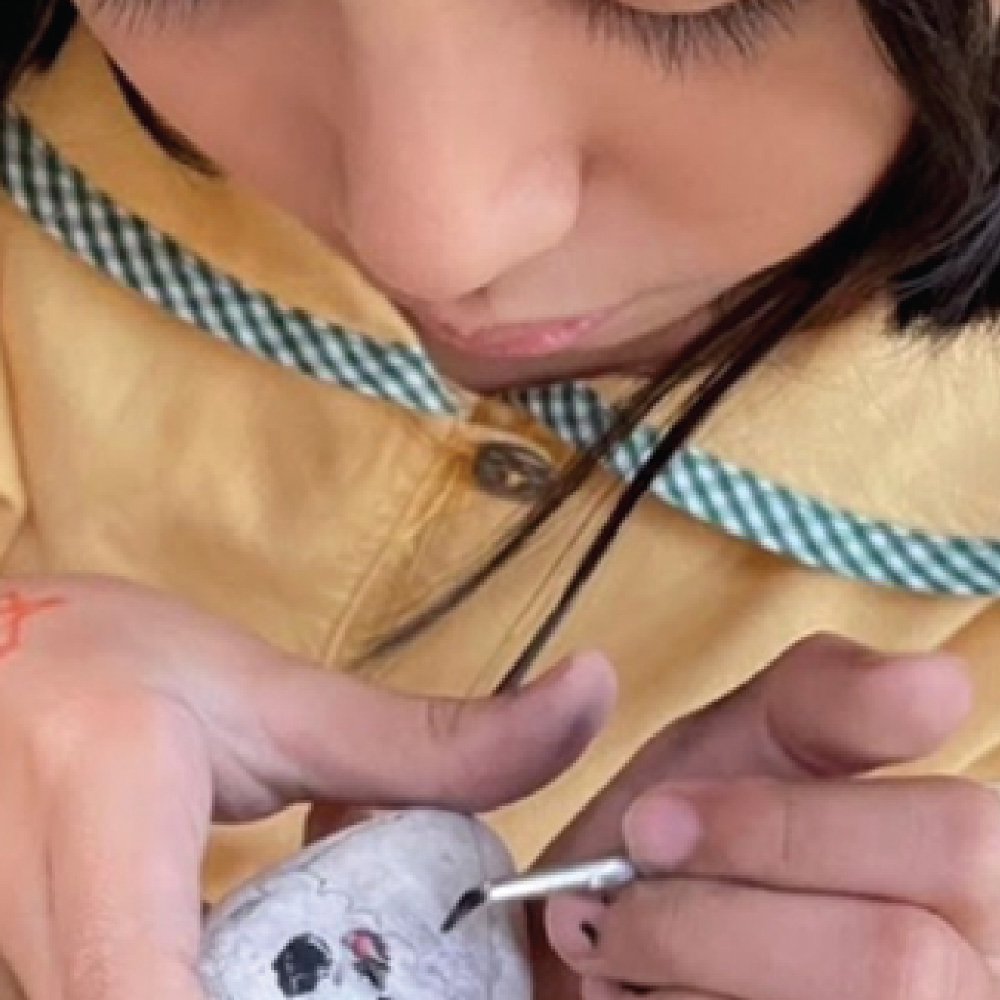
Sati
Being mindful and alert
The presence of mind, awareness, or mindfulness. To have Sati is to be fully present, not lost in daydreams, anticipation, or worry. It is being alert and attentive to everything as it is and limiting the impact of unconscious biases.
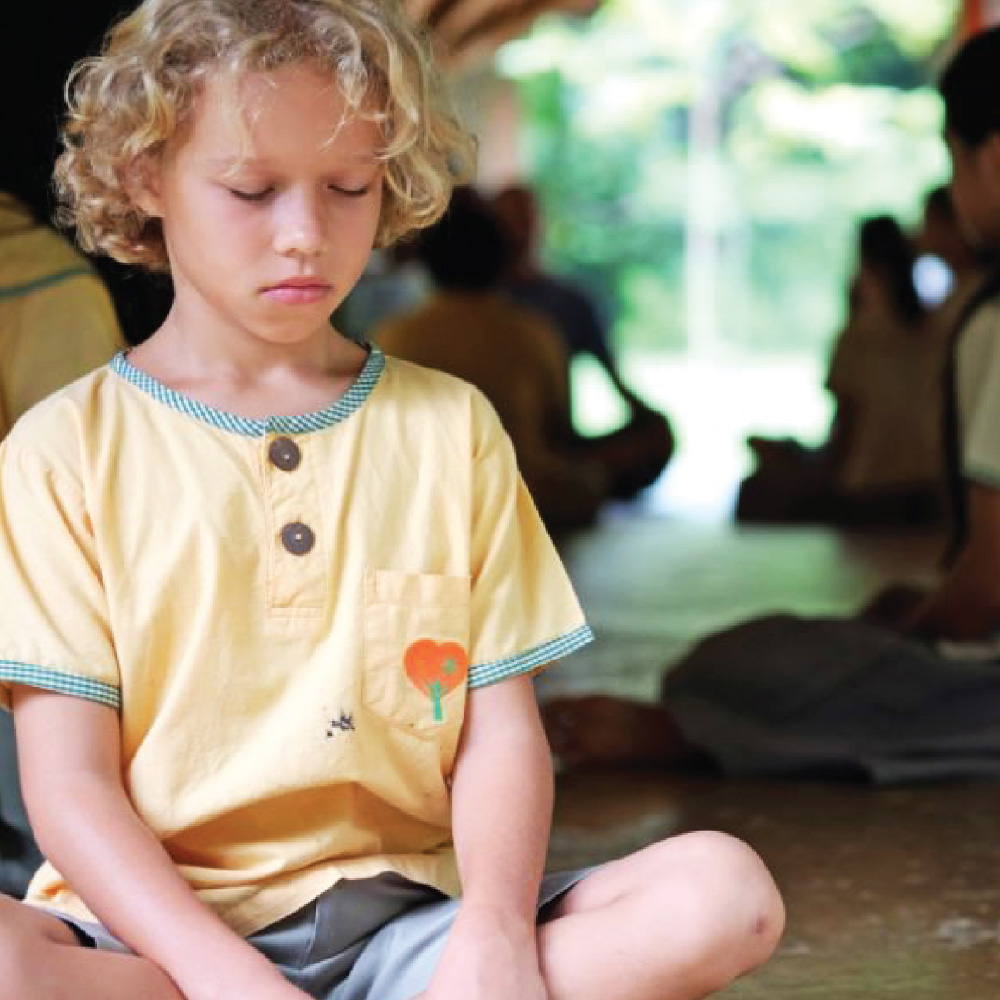
Samadhi
Being calm and focused
Concentration or composing of the mind. It is the mind that does not waver, does not scatter itself, and is focused on the task at hand despite being disturbed, pursued, or provoked.
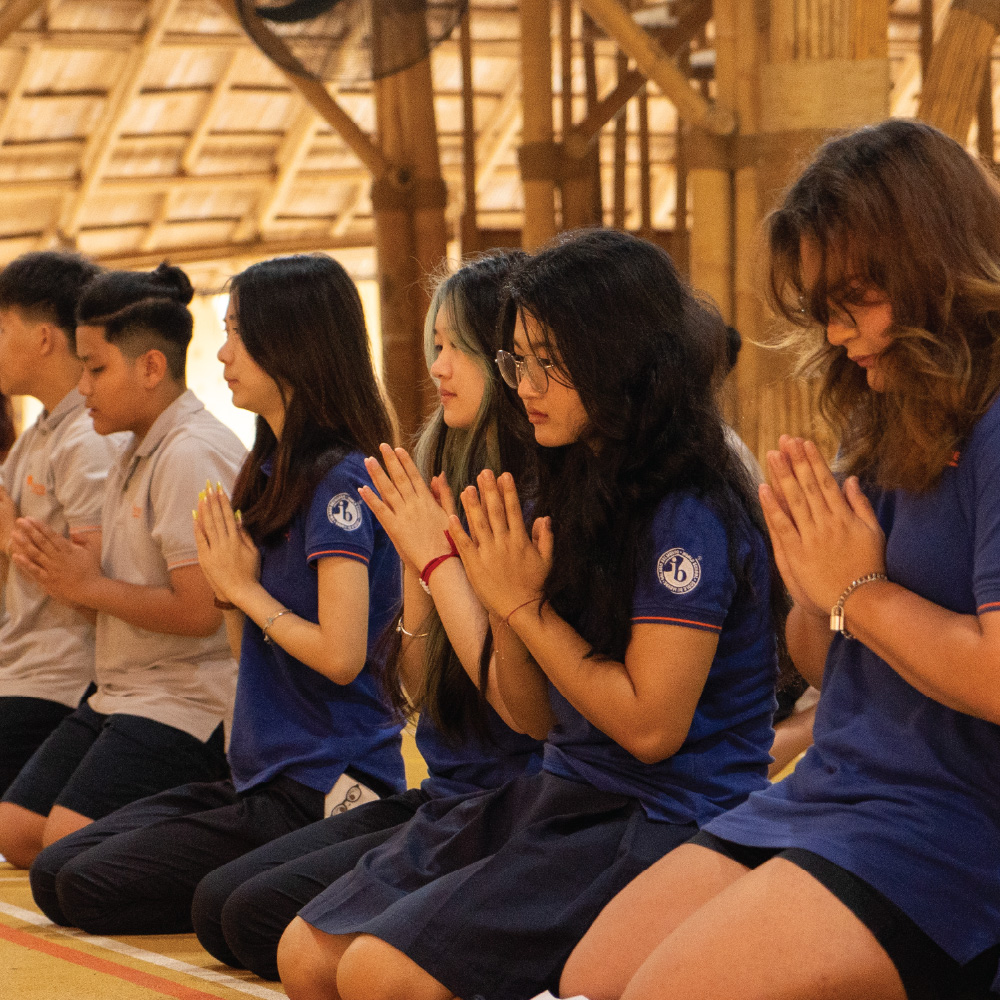
Sacca
Being truthful
“Real” or “True”. It means to uphold integrity by speaking and acting according to thr truth and to keep one’s word. The opposite of Sacca is false speech or action.

Indira-Samvara
Using the senses wisely
Developing the ability to exert some level of restraint over senses to make sure that following them still leads to harmony within ourselves and with the world around us.
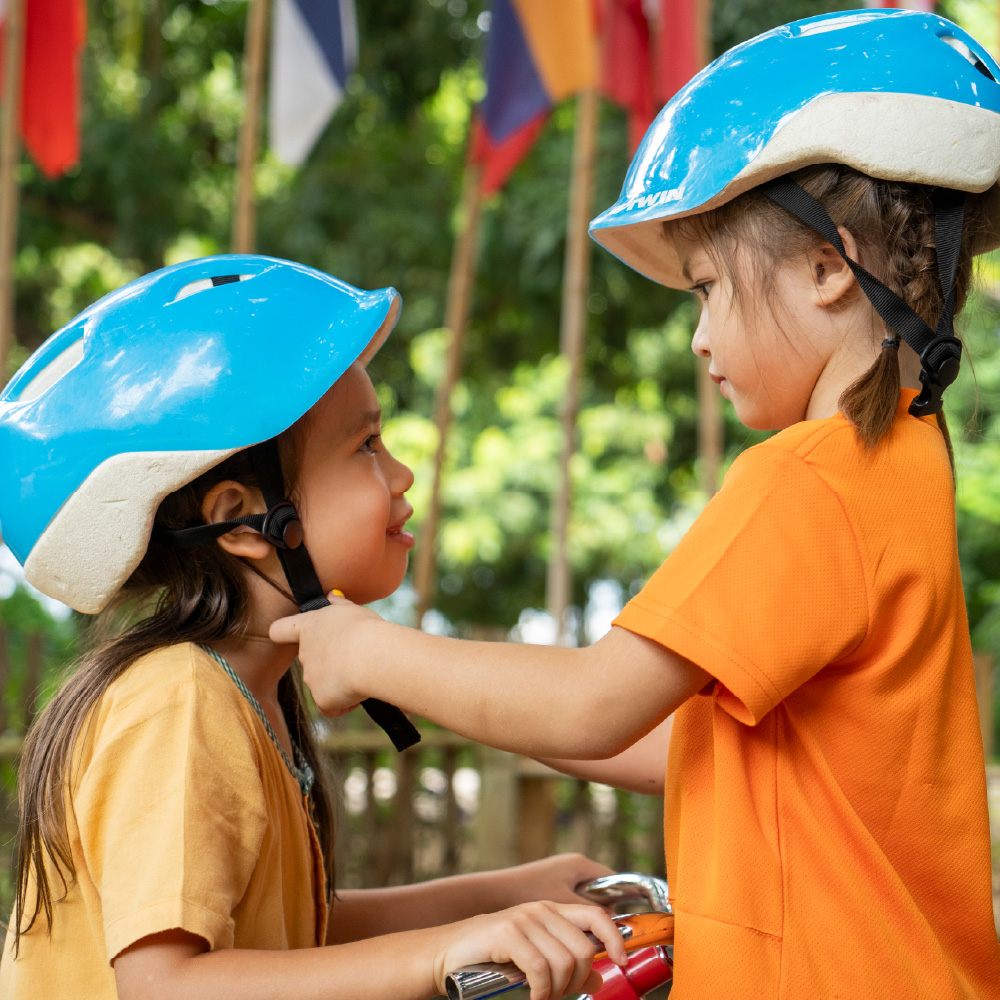
Metta-Karuna
Being kind and compassionate
Loving-kindness is defined as goodwill or benevolence. It is a strong, sincere wish for the happiness of all beings without discrimination. Karuna is compassion, the empathetic understanding of the suffering of others.
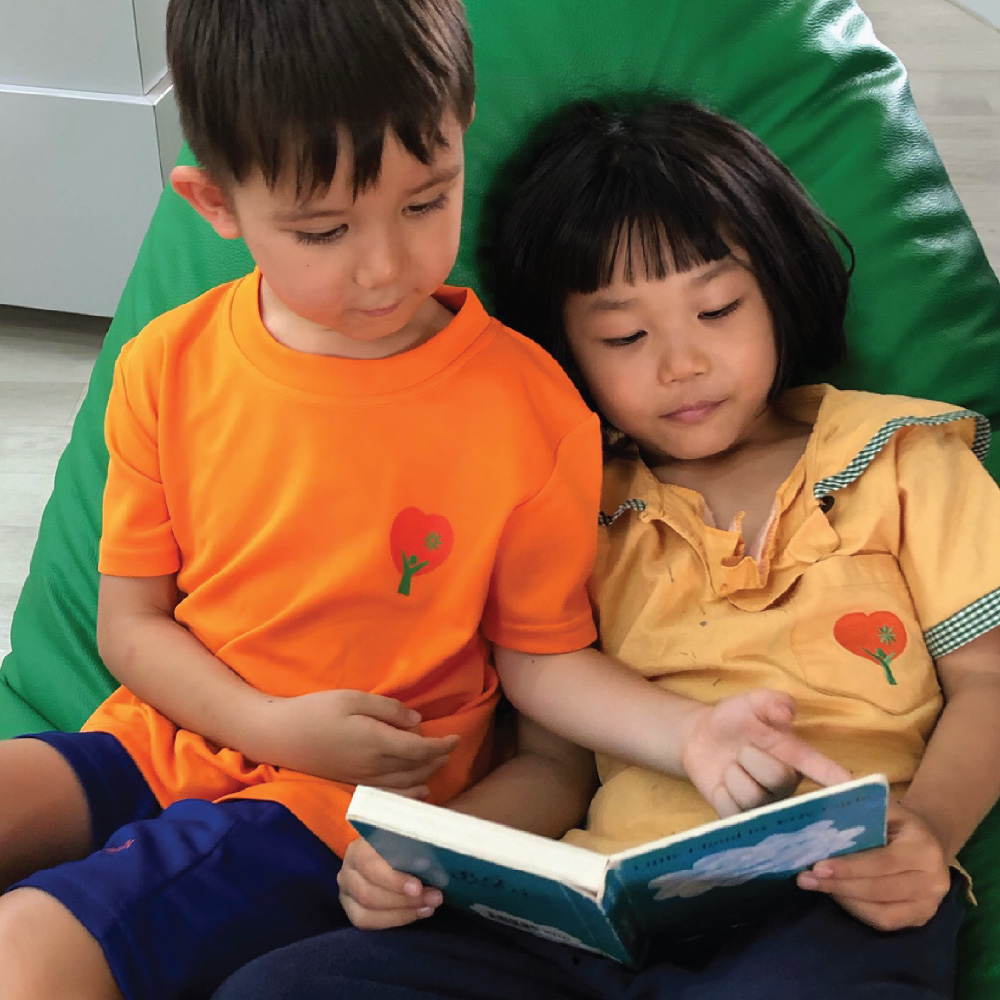
Caga
Being generous
Delighting in giving without expectation of something in return, whether time, energy, forgiveness, or willingness.

Yoniso-Manasikara
Applying the mind skilfully
Applying the mind skillfully, or wise reflection. It is thinking in terms of casual relations, such as the consequences of thoughts and actions, or by way of problem-sloving.
The Panyaden Pillars
The Panyaden Pillars emerged from our comprehensive WASC accreditation process, representing the collective vision of our entire school community working together to define what matters most for our future. These pillars serve as the cornerstone of our annual strategic planning, ensuring every decision and initiative aligns with our core commitments.
